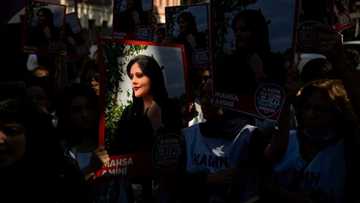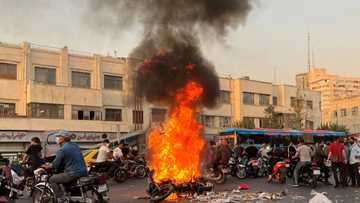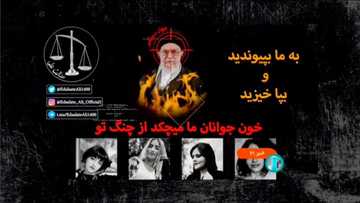Children caught up in Iran demos face 'psychological centres'
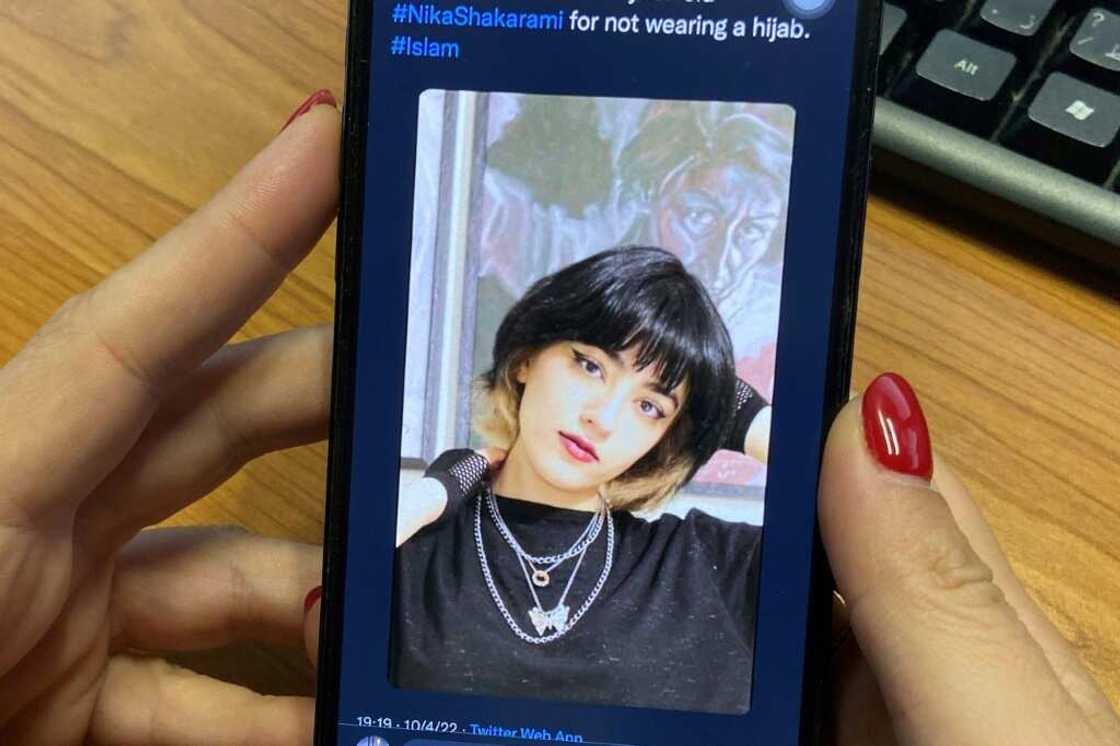
Source: AFP
PAY ATTENTION: Click “See First” under the “Following” tab to see Legit.ng News on your Facebook News Feed!
Dozens of Iranian children have been killed and hundreds detained after being caught up in protests over Mahsa Amini's death, some of them even ending up in "psychological centres", it has emerged.
Iran has been rocked by nearly a month of demonstrations driven by public outrage over Amini's death after the morality police arrested her for an alleged breach of the Islamic republic's strict dress code for women.
Fed up over the lack of change, the country's Gen-Z teens -- those born before 2010 -- have come of age and been credited for their bravery while facing off with the security forces.
"Iranian Zoomers are frustrated/angry with the status quo and aren't afraid to say it online and push outside the red lines" of the Islamic republic, tweeted Holly Dagres, an Iran specialist at the Atlantic Council think-tank.
Night after night, young women and schoolgirls have appeared on the streets with their hair exposed and fists raised, chanting "Woman, life, freedom" and "Death to the dictator".
Youths involved in the protest movement have paid with their lives, however, with the US-based rights group HRANA identifying at least 18 minors dead -- the youngest just 12 years old.
PAY ATTENTION: Share your outstanding story with our editors! Please reach us through info@corp.legit.ng!
But the overall number of children killed is widely believed to be much higher.
Iran's Children's Rights Protection Society said this week that at least 28 had lost their lives, including many from the underprivileged province of Sistan-Baluchestan.
The Tehran-based group said families were being "kept in the dark" about the whereabouts of their children, and that their cases were going ahead without proper legal representation.
Human rights lawyer Hassan Raisi said some of the children arrested were being held in detention centres for adult drug offenders.
"This is very concerning," he was quoted as saying by the London-based Iran Wire news website on Wednesday.
Anyone "under the age of 18 must never be held with any criminal over 18... This is a legal requirement, not a recommendation".
"Around 300 people between the ages of 12-13 and 18-19 are in police custody," he said, without elaborating.
Among those slain in the protests are Nika Shakarami and Sarina Esmailzadeh -- two 16-year-old girls whose deaths triggered an outpouring of grief in Iran and around the world.
'Anti-social characters' –
Protesting children have also been arrested away from streets and inside classrooms, Iran's Education Minister Yousef Nouri told the reformist Shargh newspaper in remarks published on Wednesday.
"They are not that many," he said in response to a question on the number of schoolchildren arrested. "I can't give an exact number."
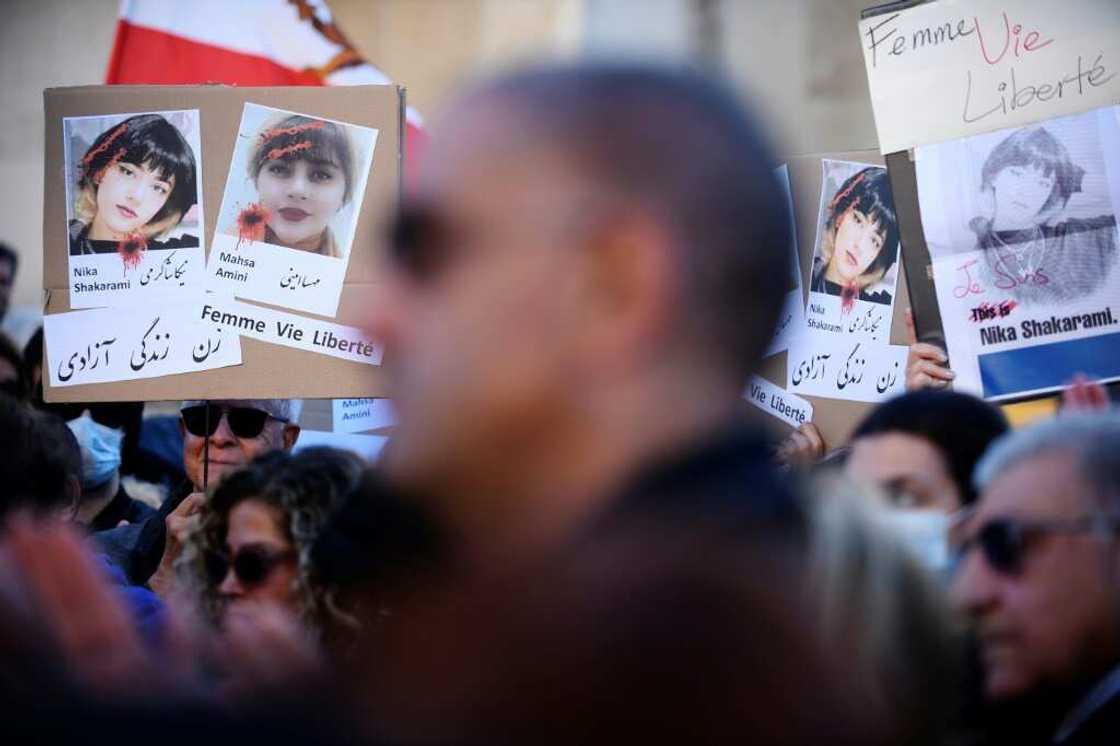
Source: AFP
Nouri said those detained were being held in "psychological centres".
The aim, he said, was "correction and rehabilitation" to stop them from becoming "anti-social characters".
The United Nations children's agency UNICEF said Monday it was "extremely concerned" over reports of "children and adolescents being killed, injured and detained" in Iran.
Despite the bloody crackdown and blocks on smartphone apps popular among Iranian teens, such as Instagram and TikTok, internet-savvy youths have still managed to get out videos of their protests.
They have adopted new tactics for the street too.
Those heading out to protests wear masks and hats, leave phones behind to avoid being tracked, and take extra clothes to change into if they are marked by paintballs that the security forces deploy to identify them later.
Revolutionary Guards deputy commander Ali Fadavi told Iranian media on October 5 that the "average age of the detainees from many of the recent protests was 15".
"Some of the teenagers and young adults arrested used similar key phrases in their confessions, such as likening street riots to video games," the Mehr news agency quoted Fadavi as saying.
The concern with video games has been echoed by other officials as well.
Cleric Aboulfazl Ahmadi, head of a provincial organisation linked to the morality police, said this month that Iran's enemies "have banked on" the country’s teenagers and that "some video games were designed to bring the youth to the streets at times like these".
Source: AFP


